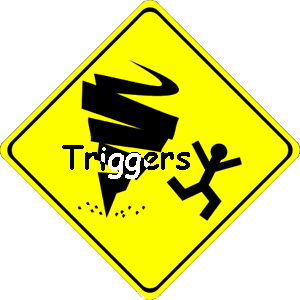
Quick hits:
- There’s no exact “right” way to grieve.
- Give yourself a chance to recognize what you need.
- Talk to someone about it!
- Grief is a human experience and you are never alone.
Like so many processes of the mind grief is filled with nuance.
There’s no right way or timeline to grieve. Some folks feel their grief has been processed in a matter of days. For others it can take years. There are those who may take years before they can really begin to grieve. All of these timelines are legitimate, valid, and understandable.
This spectrum of experience with grief can make it a challenging topic to study and discuss. I won’t purport to have it all figured out. In my experience there are very few reliable do’s and don’ts that work for most people. For every practice I’ve seen help someone, I could think of someone who found the opposite to be helpful.
That said, here are some guidelines that I have seen do the most good for the most folks. Whether it’s you, or someone you love, understanding these three ideas may help with the grieving process.
1.Give yourself the space and grace to do what you need.
Grief is personal. Listen to what your body, mind, heart, and gut are telling you. Maybe you need a day off. Maybe you need to stay busy. Of course there could be negative consequences for over-indulging in any one behavior – like isolating too much or staying too busy for too long so as to suppress and neglect your process. But I have observed that tapping in to this self-awareness can be very good for us and helpful in your process. Be intentional about checking in with yourself. Spend some time reflecting on what you need in order to honor your grief and your process. Listen to yourself. Grief is personal.
2. Try not to judge yourself.
You’ve been through something that warrants grief. This process will be challenging enough. Try not to judge yourself for not grieving right. Feeling things like, “should I be feeling more than this?” or “why am I taking this so hard?” can be counterproductive. If you do find yourself doing this, try to give yourself some grace and space to relax and acknowledge the feelings as part of your process.
Dr. Brené Brown tackles this idea of judgment as it relates to grief in her book Rising Strong. She uses some relatable examples to help us understand that our capacity for compassion, for ourselves and others, is not finite and does not take away from our other abilities.
Brene Brown, Rising Strong p. 8-9
Comparative suffering is a function of fear and scarcity. Fear and scarcity immediately trigger comparison. My husband died and that grief is worse than your grief over an empty nest. I’m not allowed to feel disappointed about being passed over for a promotion when my friend just found out that his wife has cancer. You’re feeling shame for forgetting your son’s school play? Please – that is a first world problem. There are people dying of starvation every minute.
The opposite of scarcity is not abundance; the opposite of scarcity is simply enough. Empathy is not a pizza with eight slices. When you practice empathy and compassion with someone, there is not less of these qualities to go around. There’s more.
Love is the last thing we need to ration in this world.
The refugee in Syria doesn’t benefit more if you conserve your kindness only for her and withhold it from your neighbor who is struggling through a divorce. Yes, perspective is critical. But I’m a firm believer that complaining is okay as long as we piss and moan with a little perspective. Hurt is hurt, and every time we honor our own struggle and the struggles of others by responding with empathy and compassion, the healing that results affects all of us.”
3.Talk to someone!
Yes – reflective time alone with your thoughts or with your higher power can be helpful. However, prolonged isolation is almost always unhealthy. Grief is part of the human experience. It is meant to be shared. Your pain may be unique, but you are not alone. Others have walked a similar path, and others are willing to walk with you. Find people in your life to lean on, and if they’re not available, then reach out to a counselor. They will provide a safe place to be your partner through this difficult time. You don’t need fixed. You’re not broken. What we need when we’re grieving is for someone to sit in the pain with us until it lessens a little bit. Your pain is real, and healing through it is a process. Progress happens when you share it.
Lastly, as complex as it is, we do have a substantial amount of research and resources available related to grief. For a nice summary of the stages of grief and loss, as popularly defined by Dr. Elisabeth Kubler-Ross, as well as resources related to grief, here is a helpful site:
http://grief.com/the-five-stages-of-grief/
All the best to you as you make your progress,
Matt
To schedule an appointment with Matt, please call the office at (919) 382-0288 or Matt’s direct line is (919) 794-5490, or email at matt@bullcitypsychotherapy.com.










